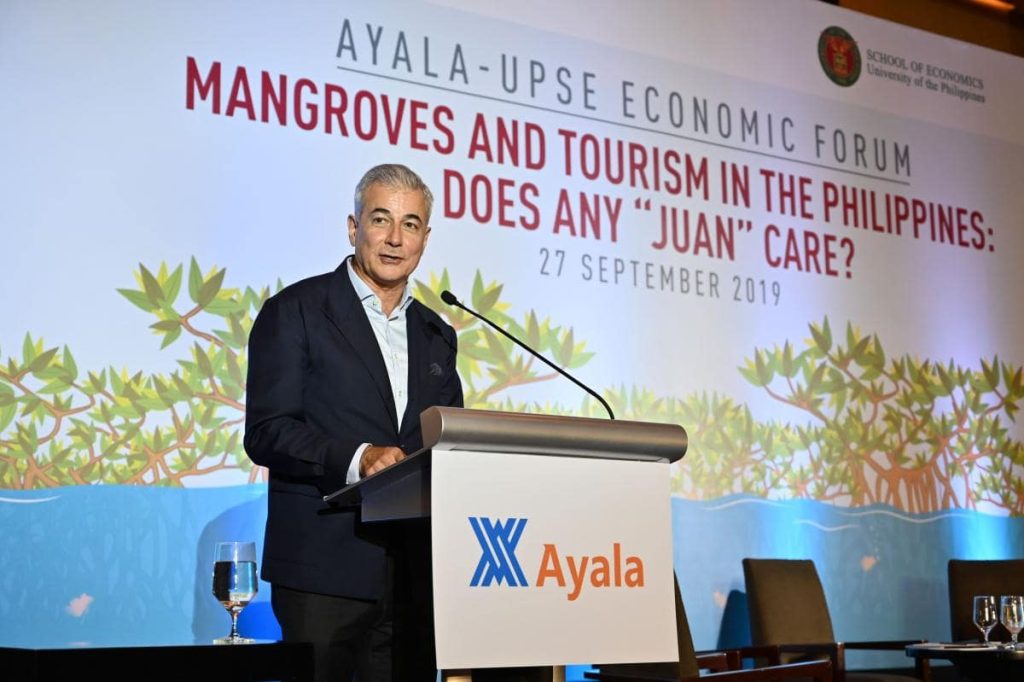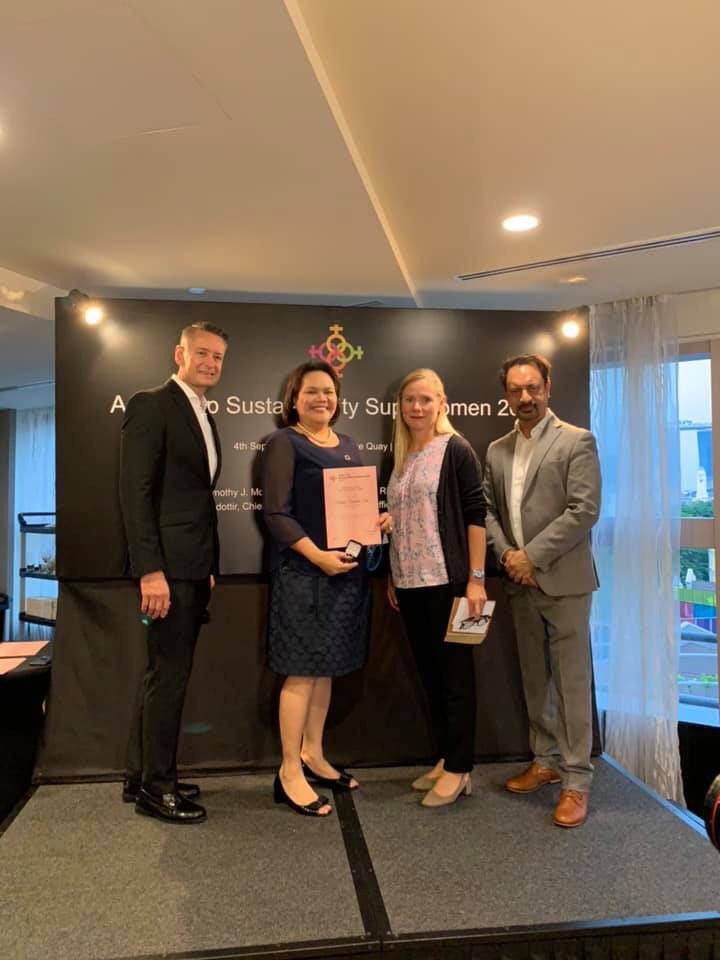Makati, Philippines – September 27, 2019 Ayala President & COO Fernando Zobel de Ayala believes that tourism is one key sector that could unlock unprecedented benefits for the Philippines. Sustainable tourism could further induce economic growth and create meaningful impact for the country’s environment and local communities.
“I would like to believe that both the country and our many domestic and foreign tourists now have a renewed sense of responsibility for our fragile ecosystem. Beyond preserving our destinations for their aesthetic and environmental appeal, sustainable tourism holds tremendous potential to responsibly unlock economic value,” Zobel said in his address to members of the academe, industry and government at the recently held Ayala-UPSE Economic Forum.
In 2018 alone, the Philippines welcomed an all-time high of 7.1 million international visitors. Tourism also contributed to P2.2 trillion to the economy, equivalent to 12.7% of GDP. The sector also supported 5.4 million jobs or 13% of the country’s total employment. With more meaningful investments, the Philippines could reach the 10 million visitor milestone within the next few years. However, Zobel equally stressed that “Any initiative on developing an area should always integrate and address the interests of the environment and the local communities.”
At Ayala, estate development plans reflect these considerations. For example, Ayala Land’s (ALI) Carbon Forest Program is designed to absorb and store carbon in six project sites covering some 587 hectares of land. The program protects and restores early secondary growth forests in swamplands, wetlands and inland location across the country. Lio Tourism Estate in El Nido has 48 hectares of these forests.
On the sociocultural and economic aspects, ALI continues to partner with the El Nido community by sourcing from them local resources for its operational needs. Some 70% of ALI’s El Nido employees also come from the community. An internship program trains them to be the next generation of sustainable tourism leaders.
“Tourism is seen as an easy, sustainable solution to provide coastal communities with alternative sources of income. Advocates believe that ecotourism simultaneously encourages community residents to become active stewards of the local coastal ecosystems,” said Dr. Ramon A. Alampay, Ph.D., Associate Professor at the UP Asian Institute of Tourism and a guest speaker at the forum.
Alampay focused on the critical role communities play as agents in the care and keeping of the mangroves in coastal towns where these are typically overlooked as an ecotourism centerpiece. Moreover, mangroves act as a natural coastal defense, preventing soil erosion and flooding. They are effective carbon sinks, capable of removing up to four times more carbon in the atmosphere, compared to tropical forests. They maintain water quality, enhancing the breeding ground for wildlife and protecting biodiversity. He emphasized the need for ecosystem-based approaches toward coastal conservation and sustainable tourism development.


